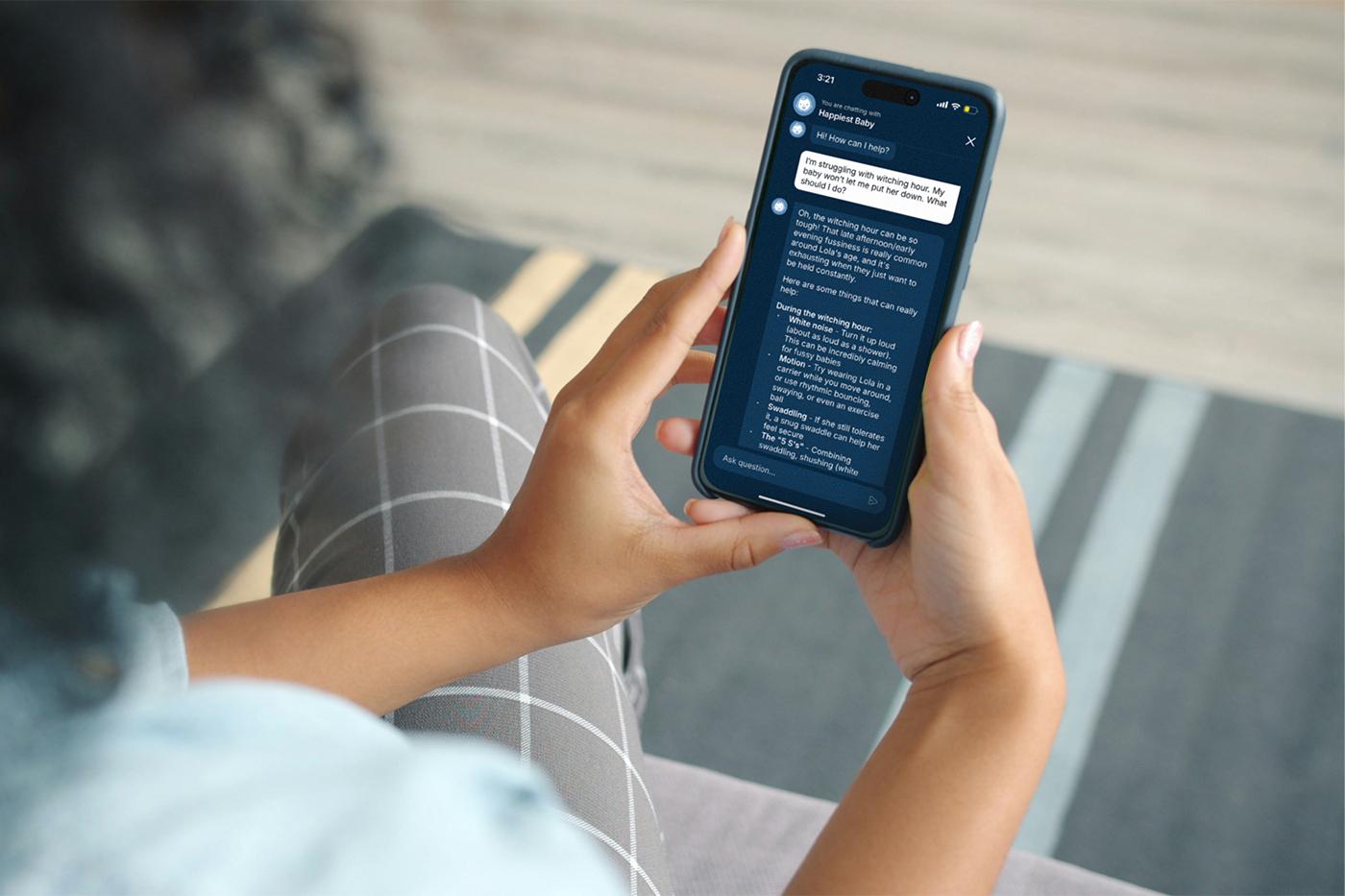SNOO
How SNOO Helped One Doctor Weather a Pandemic
SNOO helped internal medicine resident Lauren Pioppo sleep when she needed it most.

Written by
Happiest Baby Staff

Even in the best of times, medicine is a high-stress job. Add a newborn, and it gets even more intense. Throw a pandemic into the mix, and it becomes near impossible.
These are the circumstances Lauren Pioppo, Chief Resident in Rutgers’ Internal Medicine department, had to navigate when she became a mother. She welcomed her daughter last spring, and when she returned to practicing internal medicine 8 weeks later—in the thick of the COVID pandemic—sleep was key.
A 'normal' work week for Lauren is usually at least six days long and involves rotations in inpatient medicine, outpatient medicine, and the medical intensive care unit. Most days she gets to the hospital at 7 a.m. On a good day, she will leave by 5 p.m., but often a day will stretch until 9 or 10. She frequently has overnight shifts, too.
'The sleep factor is huge, especially because we're constantly flip-flopping between days and nights. I might be on a week of working overnights, and then I come home that day, I sleep, and then I'm going back to work during the day,' she says.
On top of the regular rigors of her role, the pandemic upped the intensity.
'It's been very hard for us. We were forced to cut all of our patient interactions very short because there was a lot of anxiety about, spreading COVID. Patients who didn’t have COVID would often test positive days later. So, we’re spending most of our days totally wrapped up in multiple masks and goggles that are very uncomfortable,' Lauren explains. 'The flow of patients became higher, too. Not to mention, the anxiety of potentially bringing COVID home to my daughter is very stressful as well.'
While Lauren was navigating unprecedented challenges at work, at home, she had a helper to make sure she was able to rest up as much as she could: SNOO.
Lauren started using SNOO as soon as she came home from the hospital.
'We had success from day one,' Lauren says. 'She loved it from the beginning.'
Even though her daughter seemed to be a good sleeper, on the rare occasion she did wake and fuss in the night, as soon as SNOO’s white noise and motion would level up, she would be lulled back to sleep.
'Every hour of sleep is very precious to me, which is why SNOO was so helpful,' she says. 'I think most parents in our situation are very worried about how to manage already not being able to sleep and then potentially having someone keeping us up all night.'
Knowing that her daughter was sleeping safely, also helped Lauren rest easy.
'I was extremely anxious about sleep safety. I'm probably more paranoid than most because of my job. So that was the other thing that I really liked about SNOO,' she says. 'SNOO really helps me relax.'
![[object Object]](https://cdn.sanity.io/images/301lhh0a/production/6fb439b382a275e855c2e892e1f64f23fd5d9566-480x320.jpg?w=1080&auto=format&q=75&fit=max)
SNOO came to the rescue again during the day. Thanks to COVID, Lauren’s childcare plans fell through, which meant her husband would need to juggle a baby with working from home most days. Fortunately, SNOO was like a second set of hands to support him.
'If he needed to take a shower or use the bathroom, he could stick her in the SNOO. Even if she was awake, she would be perfectly fine with rocking and she would just happily lay there,' Lauren says. 'It was a huge relief for him. Because otherwise I don't know how he would have gotten anything done.'
Lauren’s daughter has graduated from SNOO, but she feels grateful she was able to use SNOO—especially during this difficult time.
'In terms of having a baby that little I don't see how I could have been sleeping more, to be honest,' she says. 'I never had to worry about sleeping, even when she was very small. That's been a huge, a huge benefit for us.'
Disclaimer: The information on our site is NOT medical advice for any specific person or condition. It is only meant as general information. If you have any medical questions and concerns about your child or yourself, please contact your health provider. Breastmilk is the best source of nutrition for babies. It is important that, in preparation for and during breastfeeding, mothers eat a healthy, balanced diet. Combined breast- and bottle-feeding in the first weeks of life may reduce the supply of a mother's breastmilk and reversing the decision not to breastfeed is difficult. If you do decide to use infant formula, you should follow instructions carefully.
SHARE THIS ARTICLE
PARENT PICKS
Bestsellers



















